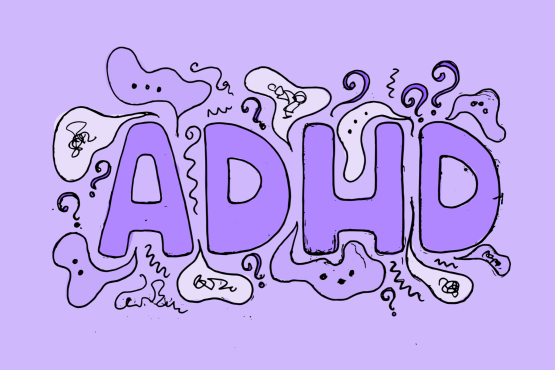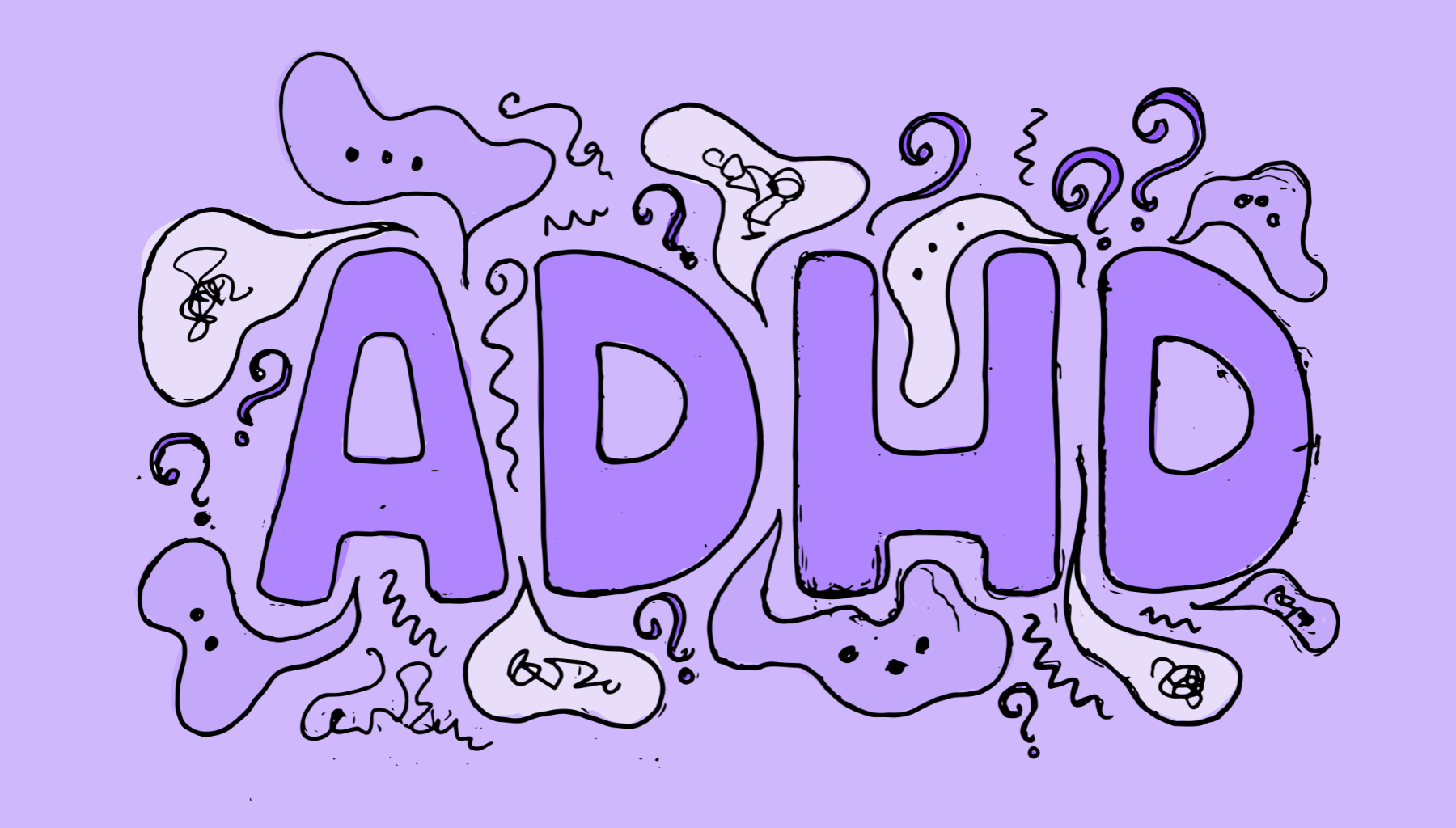October is awareness month for ADHD, a neurodevelopmental disorder that can seriously affect students

Illustration by Sage Blackwell.
Every October, the Centre for ADHD Awareness, Canada (CADDCA) launches an initiative to raise awareness about ADHD. “The Many Faces of ADHD,” is the theme for this year’s campaign to recognize the multifaceted qualities of ADHD and ensure every unique individual is represented in their cause.
Attention-Deficit/Hyperactivity Disorder (ADHD) is a neurodevelopmental disorder that alters how the brain functions. Neurodevelopmental disorders occur during infancy through adolescence and persist throughout an individual’s life. Regardless of the “attention-deficit” part of the disorder, those with ADHD don’t lack attention; rather, they may face difficulty controlling attention.
Approximately 70 per cent of adults with ADHD also experience accompanying mental health issues, such as anxiety disorders, depression, eating disorders, or substance use disorders. Prior to my own diagnosis, I faced several challenges that were ultimately caused by my ADHD. However, due to my lack of awareness about the disorder, I often blamed myself.
Because ADHD affects an individual’s ability to function, their mental health is at risk, especially when it goes undiagnosed. The struggles I faced pre-diagnosis led to an extremely skewed perception of self. My desire to be “normal” and function like my peers took over my life, leading to low self-worth. The unexplainable behaviours I displayed made it seem like I was attention-seeking or dramatic when I was not, and I was often met with ridicule. For the 18 years I lived with undiagnosed ADHD, I constantly felt misunderstood. This feeling impacted my relationships with my friends and family, making it challenging for me to form new connections. I lived under the belief that I was ‘too much,’ and no one would ever understand me.
Before my ADHD diagnosis, I had a difficult time retaining information and sitting through lessons in high school and university. I constantly felt bored, and engaged in risky behaviour to seek sensations that resulted in the release of dopamine. Additionally, my emotional regulation skills were severely lacking, so small conflicts sometimes led to emotional outbursts. These factors made academic success feel so out of reach that giving up felt like the only viable option.
Eventually, when I was diagnosed with ADHD in the summer of 2022, it was far from an “aha” moment. It felt like a confirmation of everything I had been experiencing and unearthed a new perspective on my approach to life. Living with ADHD means constantly learning to adapt to the world around you, so with my diagnosis, I have learned to take one day at a time and give myself more grace.
If you have ADHD or suspect you might, it is important to prioritize your mental well-being. The following resources are available, if you feel the need.
The UVic Wellness Centre is just one of the resources that students can use if they are struggling with their mental health. They offer counselling, spiritual care, medical care, and SupportConnect which is a free mental health support service that connects UVic students with counsellors via phone or video chat.
The Center for Accessible Learning (CAL) promotes educational accessibility for students with disabilities. They provide students with accommodations that alleviate some of the pressures of university.
Foundry is a free health and wellness service for people ages 12-24 that has helped me tremendously throughout my experience with mental health struggles. They offer resources to improve anxiety, low mood, depression, body image, eating disorders, and more. They provide virtual and in-person counselling and health care resources across the province. In Victoria, they are located at 546 Yates Street.
The Vancouver Island Adult ADHD Association is a non-profit organization that hosts virtual support groups for adults with ADHD every other week. They also offer resources such as podcasts, books, audiobooks, and videos that can be helpful for individuals who are trying to understand ADHD.
The Vancouver Island Crisis Line is a nonprofit 24-hour resource that provides care to people of all ages. Their number for phone calls is 1-888-494-3888. They also have a crisis text number (250-800-3806) that operates every day of the week from 6:00 p.m. to 10:00 p.m. Pacific Time.


